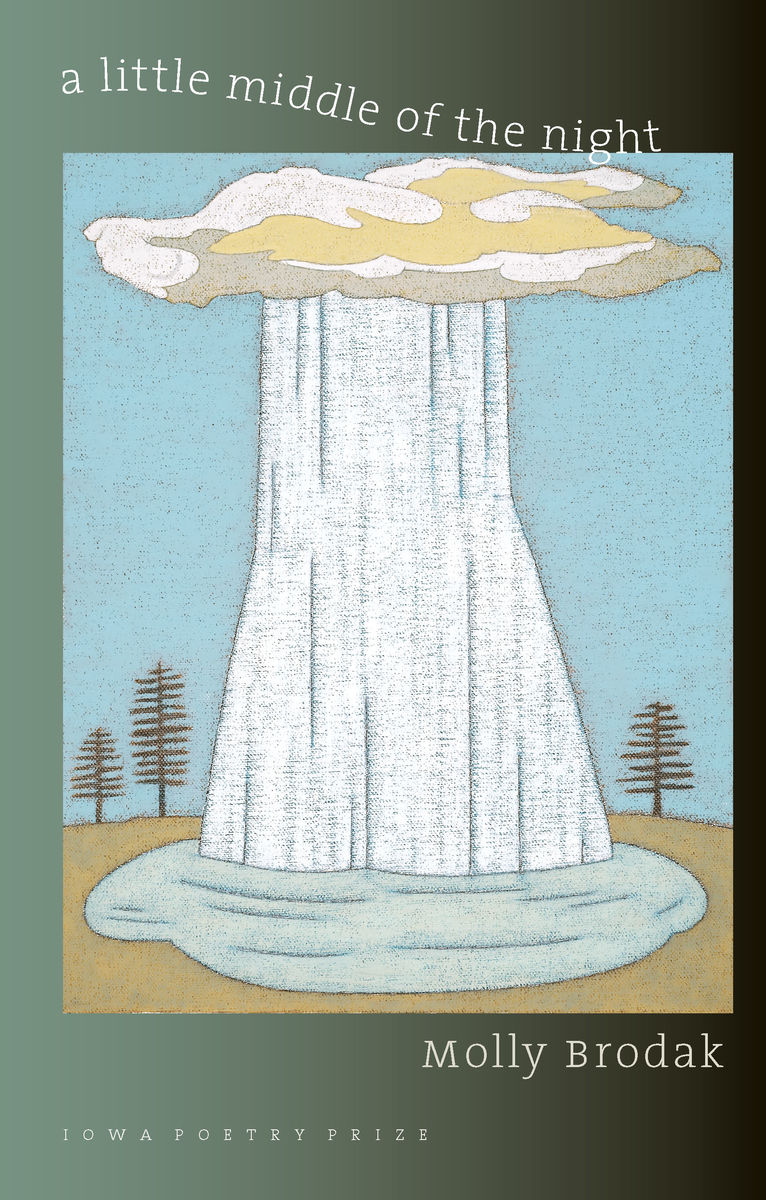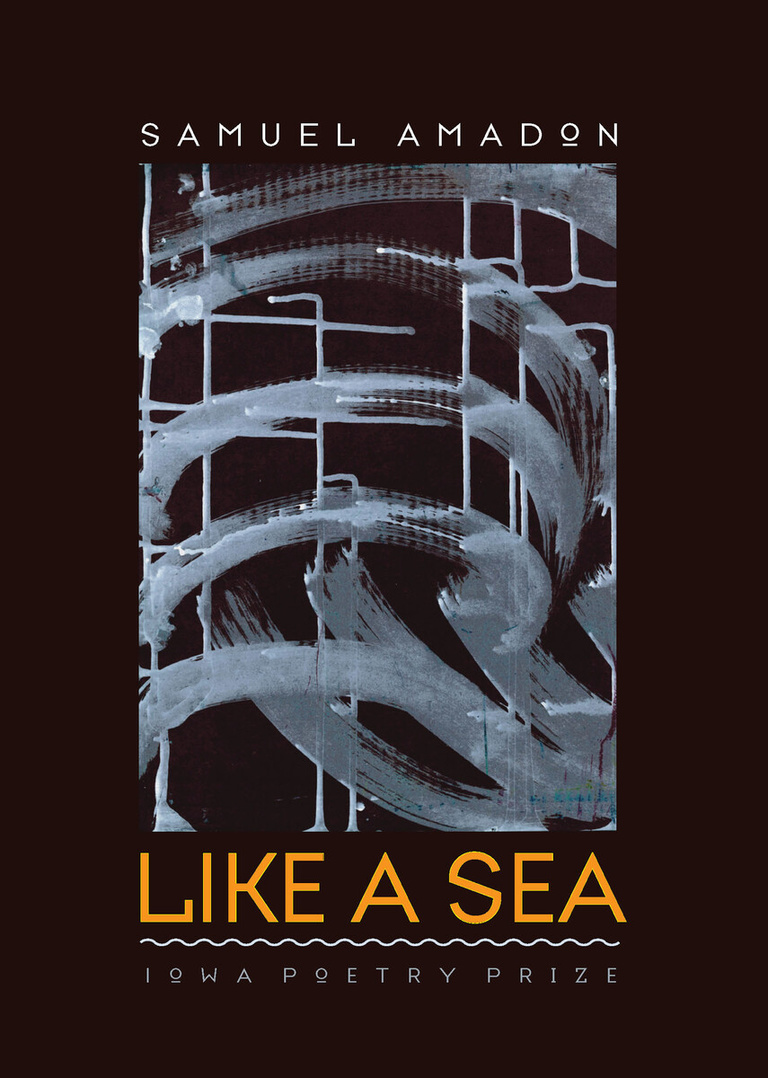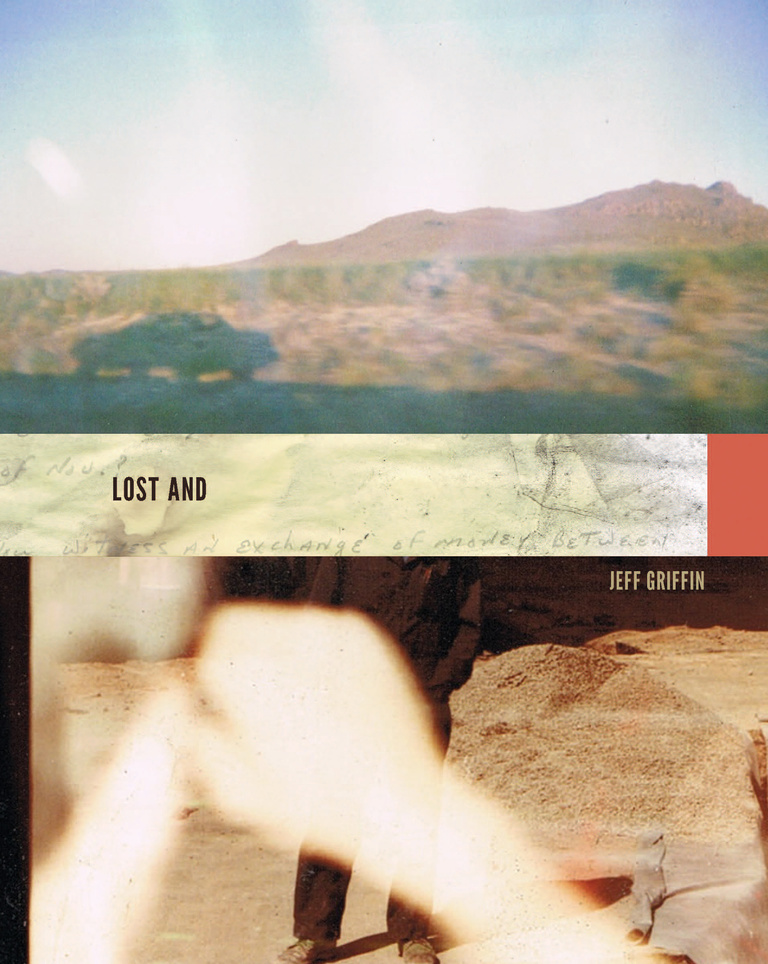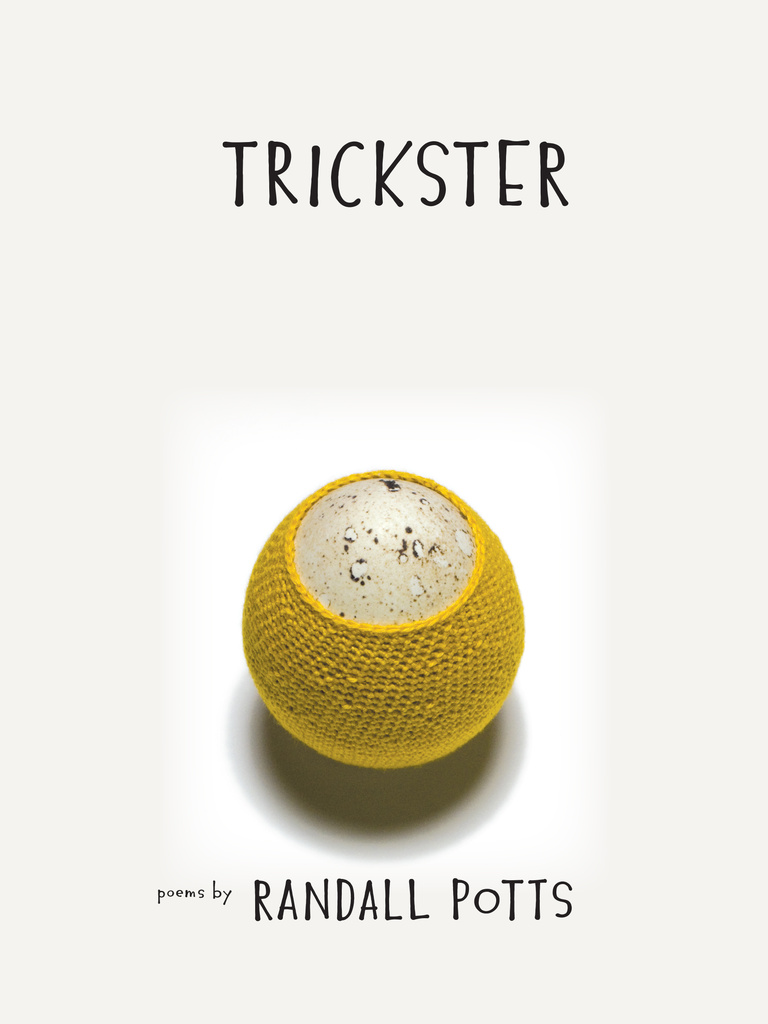The language of Molly Brodak’s first full-length collection, A Little Middle of the Night, is ever shifting, brightly sonic, and disarming while exploring the margin between nature and art, darkness and beauty, dreams and awakenings. As echoed in one epigraph from Emerson, these poems capture “the Exact and the Vast” of consciousness in intense lyric verse with an angular and almost scientific sensitivity. Here is a speaker intent on discovery: “Oh whole world, we choose / another.”
This award-winning collection simmers with wit as Brodak confronts tragedy, childhood losses, transcendent love, and the question of art itself. Tinged with a suffering—“I was the littlest wastebasket. / I was my own church. Except— / scared, scared”—that rises above personal sorrow, her fierce and painterly poems redefine nature and art and what exists between: “Lately, there is spangled shade in my space / and a cold apple orchard to tend in place of consciousness.” As Reginald Shepherd said about the poems in Brodak’s first collection, the chapbook Instructions for a Painting, her world is “‘small enough / to sing in all directions,’ and large enough to take us there.”
“In Molly Brodak’s poems, peril happens—a real thing—and then a flashbulb goes off or night comes on, and after begins again. By turns wistful and darkly comic, understandably sad and necessarily defiant, these poems make their own consolation. To read them is to remember what poetry is good for.”—Mary Ann Samyn, author, Beauty Breaks In
“As Molly Brodak’s poems continually shift perspective from the self to family to history—they create a plurality of experiences that allow the reader to keep ‘turning under and under every buried thing / until deep [is] not under but across.’ And this distance across, this ‘from here to there,’ is made ever more strange and human by the obstacles of time and dream and illness that rise in these wonderful poems. It’s a journey of no easy answers, where ‘the future had scalloped edges,’ and is not something waiting, but something happening.”— John Gallaher, Laurel Review
“A Little Middle of the Night is stunning. With expressionistic care and a gilt-edged blade of language, Molly Brodak’s wide-ranging voice reaches into the self and magically finds the shimmering world around us, the two-minded truth that ‘every knife / you push in a man / will want out.’ She moves through her richly textured poems with expert lucidity and plunges into the underneath to reveal the threat of violence, the fallible body, and the underbellies of this life so crammed with glitter and tarnish that angels blush.”—Alex Lemon, author, Fancy Beasts and Happy: A Memoir
Niger Lullaby 1
Poem for a Child’s Voice 2
Make Belief 3
Under Age 4
And How Did Your Rapture Turn Out? 5
Before Memory 6
Les Blessures Graves 9
The Horse Museum 10
Ought 11
Underneath Underneath 13
Underneath at All 14
Underneath (Side Effects) 15
Underneath 16
Diary of a Year without Pictures 17
Mild Peril 23
Going Back to Sleep 24
Mars Black 25
White Trash 27
Lake Superior 28
Appalachia 31
North of North 32
Funny Old 33
A Little Middle of the Night 35
Whoever Said Hell Is Not Beautiful 36
I Hope You’re Happ y: A Novel 38
Pale Yellow Throat 42
Lake-like 45
Lacan as an Australian Settler 46
Folkways 47
Cabaret Voltaire 48
Like Your Jesus, Only Mine 50
Roman Girls 51
Drawer of Cardinals 52
Vermeer Sounds 53
Snow White 54
Joseph Conrad’s Last Novel (Which Is Comprised Entirely
of Face Colors Used in His Previous Novels) 57
The Greek Theater 58
The First Poem 59
Ramp of the Chinese Dog 60
Scene from an Unknown Painting 61
Midwest Wilderness 62
Past the Sawmill 63
Real World Magic 64
Notes 65
Underneath
Ever to admit my loneliness is unnecessary
and hedge in whatever frail danger is left in me
doesn’t explain why things feel so inside out.
The last dump and trailer on the edge of town—
which way to the wilderness? Which edge.
Let them think
we need to witness our own limits transgressed.
Let them think there are limits.
I was the littlest wastebasket.
I was my own church. Except—
scared, scared.



